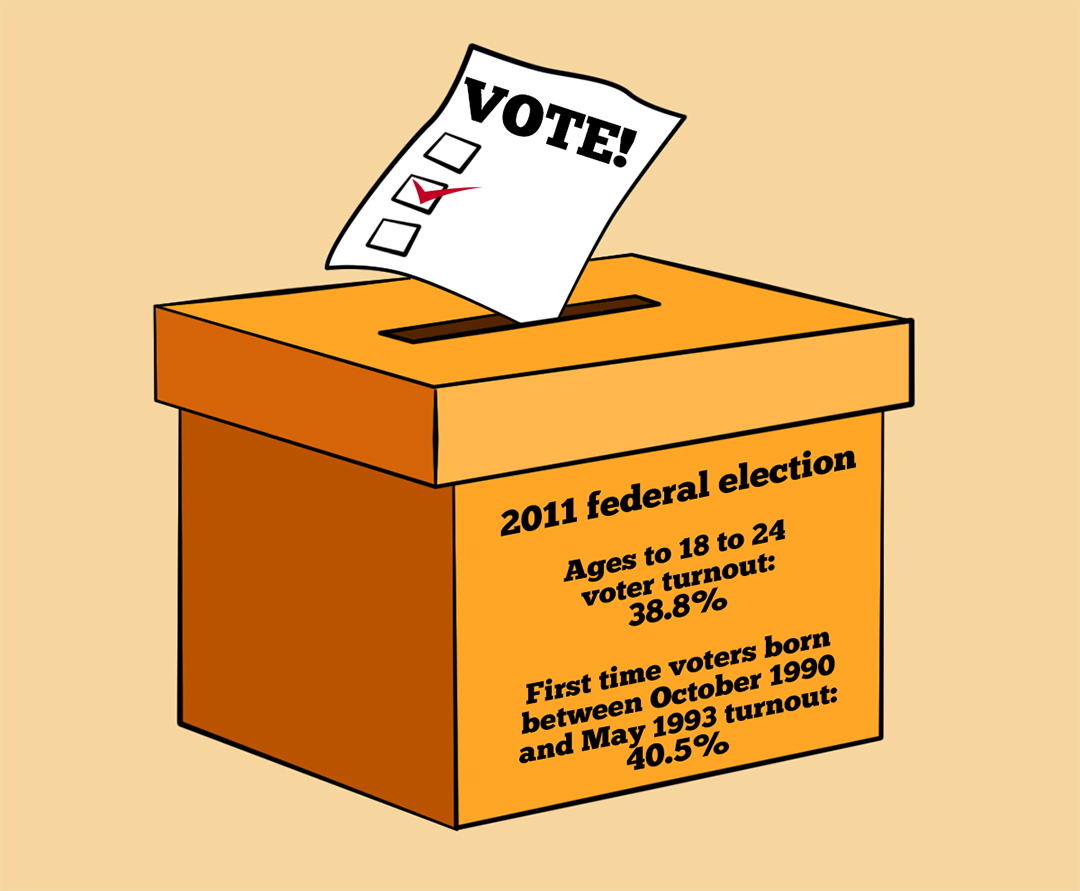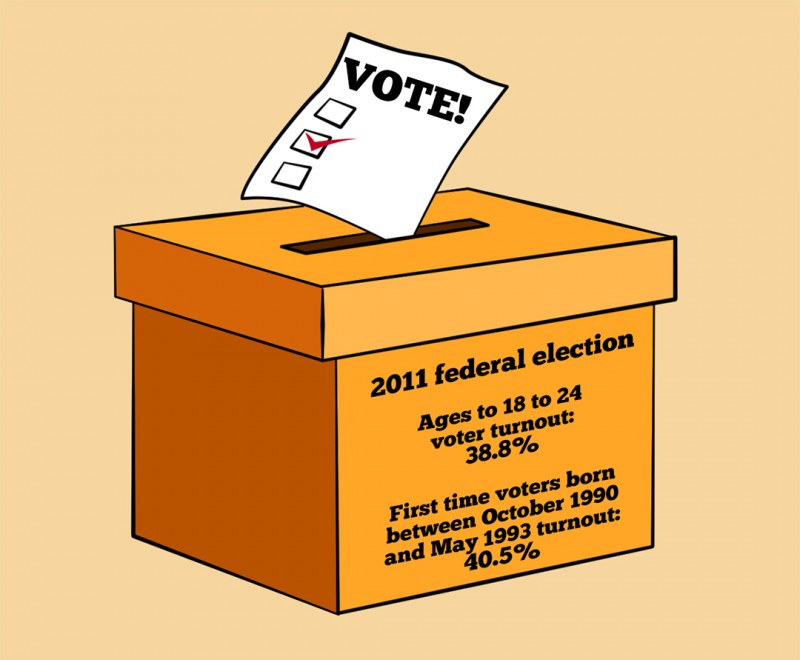Voting upgrade to affect youth turnout

Improvements in voting for youth between 18-24 could create a big impact in the federal election

Voter turnout in federal elections historically increases with age, and as a result attention is being turned to students to step up and vote this coming Oct. 19.
To support this, a new project is being piloted by Elections Canada which will allow students to vote nationally — to vote in their home riding — while at school. 40 university campuses across Canada are hosting these polling stations.
Nick Driedger, chief returning officer for Elections Canada in Waterloo, noted the University of Waterloo is one of these campuses.
“The participation rates were positive yesterday,” Driedger said of Monday, when the special polls opened. “There was a relatively steady stream of students voting.”
The hope is that this will make voting more accessible to students who might not be able to provide identification for a local address. These polls will be open until Thursday. Regular advanced polls open Friday and are available over Thanksgiving weekend.
The Wilfrid Laurier University Students’ Union has also been taking steps since the campaign period first began to encourage students to get informed.
Laura Bassett, vice-president of university affairs, explained how the Union looked to other universities in Canada who have notoriously high voter turnout to find tactics which might instigate an increase at Laurier. Using the example set by McMaster University and resources from the Student Life Levy, the Students’ Union put together the brand #LaurierVotes.
“We’re essentially branding the process of voting to make it a cooler thing to do on campus,” Bassett explained. “We’re also putting that messaging into something that can be translated into any type of media outlet.”
They’ve also been posting blog entries, which provide students with information about the local candidates and their respective parties. These candidates will attend a debate hosted by the Students’ Union and Wilfrid Laurier University Student Publications on Wednesday.
From Bassett’s perspective, she hasn’t seen the level of apathy that is usually attributed to students.
“I’ve had students come to my desk — they came in July asking me what we were doing for the federal election and how they can get involved,” she said.
Students, she continued, realize the importance of casting their vote.
“I think that this election will be very telling to where the direction of Canada goes and I think students are very cognisant of that, that this is something that’s going to affect them for the next four years.”
According to Sharon Sommerville, chapter coordinator and co-chair of Fair Vote Canada Waterloo Region, this election will determine the direction of Canada not just for four years, but for one or two generations.
Fair Vote is a national citizens’ organization that has been campaigning to promote a move from the current first-past-the-post electoral system to a proportional voting system. With this system, Sommerville said, the vote of Canadians would be more effective.
Until a party who is in favour of electoral reform is voted into Parliament, Sommerville is pushing for people to vote strategically in this election.
She is doing so through a campaign called Lead Now, which is run through Vote Together, another citizen-led organization.
They are running some initiatives handing out fliers on university campuses to encourage students to vote strategically and be further engaged in the election
“There’s been so much talk in the media about the student vote, the youth vote,” Sommerville said. “I think there is a higher awareness of that in the age group around voting.”
In the 2011 federal election, voter turnout for ages 18 to 24 was 38.8 per cent. For first time voters, those born between October 1990 and May 1993, turnout was 40.5 per cent.
“What’s going to be interesting to see if that group actually turns out in that larger number again,” Sommerville said. “Because that means there’s been a slight consciousness change.”
Young people, she continued, could have a great impact on the election.
“What we know is that if the youth vote, the student vote got out enmasse to vote they absolutely could change the outcome of this election,” she said. “And I know a percentage of young people are hearing that message.”
Laurier students Lizzy Woods and Ray Rego said they aren’t at all engaged in the federal election.
“I’m not interested,” said Rego, regarding casting a vote. “I feel like it doesn’t really make a difference.”
Ryan Paul, another Laurier student, said he doesn’t plan on voting because he is uninformed.
However, fellow student Joyce Lai said her roommates have been very vocal about the elections and have been discussing the parties’ platforms.
Sommerville urged young people to reflect on the issues that are important to them and find the party that matches.
“You wouldn’t have your parents or your grandparents tell you how to dress, what to eat, what kind of car to drive, what to study — but you are giving up that right to decision-making to the older generations,” she continued. “That’s really important for young people to know.”


